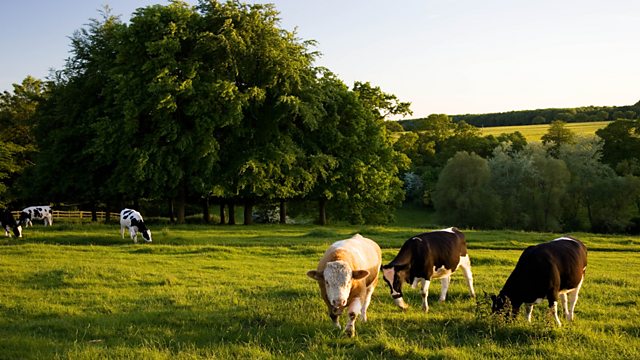
Greenbelt, Fois Gras and useful sheep
The greenbelt and calls for a new cohesive housing strategy. Plus Fois Gras production and how sheep can be used in the protection of rare plants.
There's more than a million and a half hectares of green belt in the United Kingdom, credited by many with stopping urban sprawl and providing us with recreational green space. We're examining the green belt in our programmes all this week. How safe is its future? Should it be sacrosanct? Or is building on it the obvious solution to the housing crisis? Today we hear from Hugh Ellis, Chief Executive of the Town and Country Planning Association.
The conservationists at Forest Enterprise Scotland have found a new way to solve a problem they have on a special site in Highland Perthshire. There's too much rough vegetation growing around a Bronze Age four-post stone circle and unusual limestone outcrops where rare plants grow. They've found some sheep to come and graze this unique piece of land.
The production of Foie Gras is banned in this country as in many others around the world. Most of it is produced in France and, in most cases, by the force-feeding of geese and ducks to swell their livers with fatty deposits - a process which critics say is cruel. However lovers of this 'delicacy' disagree and gourmands - especially in France - relish its rich taste. A ban on French foie gras production since earlier this year because of a bird flu scare has hit both farmers and consumers.
Presented by Caz Graham and produced by Emily Hughes.
Last on
Broadcast
- Tue 30 Aug 2016 05:45Βι¶ΉΤΌΕΔ Radio 4
Podcast
-
![]()
Farming Today
The latest news about food, farming and the countryside

